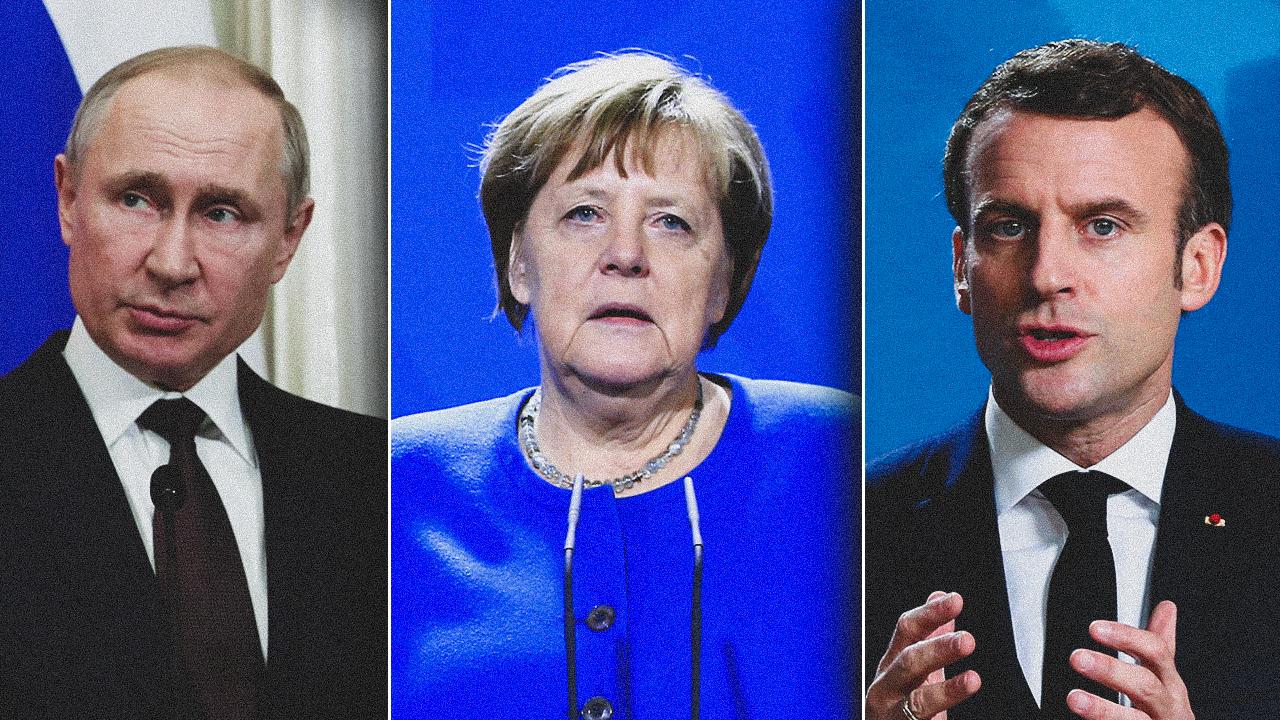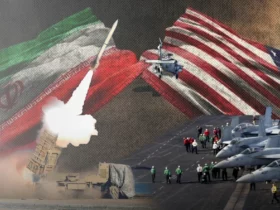Amid US-British attempts to raise tensions with Russia over the Ukraine and Belarus, the leaders of Russia, Germany and France held a video conference on March 30th.
In the conference, Germany’s Chancellor Merkel, French President Macron and Russian President Putin discussed a wide range of issues: The Covid-19 vaccine Sputnik V, the detention of Navalny, the situation in the Belarus, in the Ukraine, in Syria and Libya as well as the JCPOA with Iran were on the agenda.
The German Chancellor text can be found here, the French Presidency declaration here and the Russian Presidency declaration here.
Sputnik V vaccine to European Union
The talks started with the possible cooperation on the Russian Covid-19 vaccine, Sputnik V, its registration in the European Union, delivery into the EU and joint production.
The leaders of both Germany and France declared that the process depended on the European Medicine Agency’s (EMA) research and approval. The vaccine has already been registered to the EMA in order to receive approval.
The main German news program Tagesschau of the ARD Television reports that two German Federal State Prime Ministers already declared publicly they would get vaccinated with the Sputnik V, while the European Union still struggles with the unsatisfied demand for vaccines. But the report states sources from the EMA that the approval process may take up to four months.
Navalny
The French President and German Chancellor “alerted” President Putin about the situation of Alexei Navalny and called to respect his rights “in accordance with the European Convention on Human Rights”.
“Regarding the issue of Alexei Navalny raised by the partners, explanations of the objective circumstances of the case were provided”, declared the Kremlin.
US “Radio Free Europe” meanwhile announced that Navalny has started a “hunger strike” in protest on prison conditions.
Belarus: German – French texts differ
Another topic of the video conference was the situation in Belarus. While the French communiqué demanded an “inclusive dialogue”, the German text as delivered by the Chancellor’s Spokesperson, Steffan Seibert, called for “free elections”.
President Putin pointed out that “foreign interference in the affairs of that sovereign state is unacceptable”.
Consensus in Libya
The three governmental declarations displayed relative consensus concerning Libya, with all sides welcoming the “ceasefire regime” and supporting the “transition process”.
The Kremlin expressed “hope that the establishment of united transitional authorities in the country would become a major step towards an effective political process involving all the main Libyan forces”, while France “called France, Germany and Russia bringing their influence fully to bear to foster the ongoing transition process and ensure the security situation improves.”
Agreement on JCPOA
“The leaders of Russia, Germany and France unambiguously called for the preservation and implementation of the Joint Comprehensive Plan of Action (JCPOA) on Iran’s nuclear programme and continued coordination of efforts towards this objective”, as stated the Kremlin in official declaration.
The French declaration stated that the three leaders agreed, “to coordinate their efforts for dialogue to begin and for Iran to return to compliance with its obligations as soon as possible”.
Commenting on the video conference, André Ballin from the German business oriented daily newspaper Handelsblatt commented that “a lot of bilateral problems with Russia could have been avoided, if Moscow’s security interests had been taken more seriously by the Europeans”. Ballin also declared that sanctions alone did not constitute “a plan”.
Ukraine: Europe demands negotiations, Russia has conditions, and the US is provoking
A major topic in the video conference was the situation in the Ukraine. The German Chancellor called to “progress within the Normandie Format on the basis of Minsk-Agreements”.
The French Presidency additionally called on Russia “to act determinedly to stabilize the ceasefire in Ukraine”.
The Kremlin attributed great importance to the Ukraine, placing it high above in the official declaration and making a long statement. Putin acknowledged the Minsk Agreement as “basis for a settlement”, but called on Kiev to fulfill according duties. The Kremlin stated:
“The President of Russia emphasized that it is important that the Kiev authorities implement all the previous agreements reached at the top level, primarily on establishing a direct dialogue with Donetsk and Lugansk and settling the legal aspects of a special status for Donbass. The Russian leader expressed serious concern about the escalation of armed confrontation on the contact line being provoked by Ukraine and its refusal to implement the additional measures to strengthen the ceasefire coordinated by the Trilateral Contact Group in July 2020. The leaders’ political advisers will continue their joint efforts.”
Meanwhile, the US has sharpened anti-Russian rhetoric over the Ukraine conflict. Speaking with the Ukrainian Foreign Minister, the US Secretary of State Blinken stated, “affirmed the United States’ unwavering support for Ukraine’s sovereignty and territorial integrity in the face of Russia’s ongoing aggression in the Donbas and Crimea.”
Meanwhile, 27 different US organizations, among them several left-leaning groups, have called President Biden to halt the use of “reckless” rhetoric with Russian President Putin and instead conduct “constructive bilateral talks”, reports the US news website The Hill.
The leaders of Russia, Germany and France have also spoken about the situation in Syria. Paris and Berlin demanded the opening of border crossings and progress of the Constitutional Committee. The Kremlin declared that the situation in Syria is “continuing to stabilize” and agreed on the need to provide humanitarian assistance. Moscow did not make any reference to the Constitutional Committee in its declaration.

















Leave a Reply